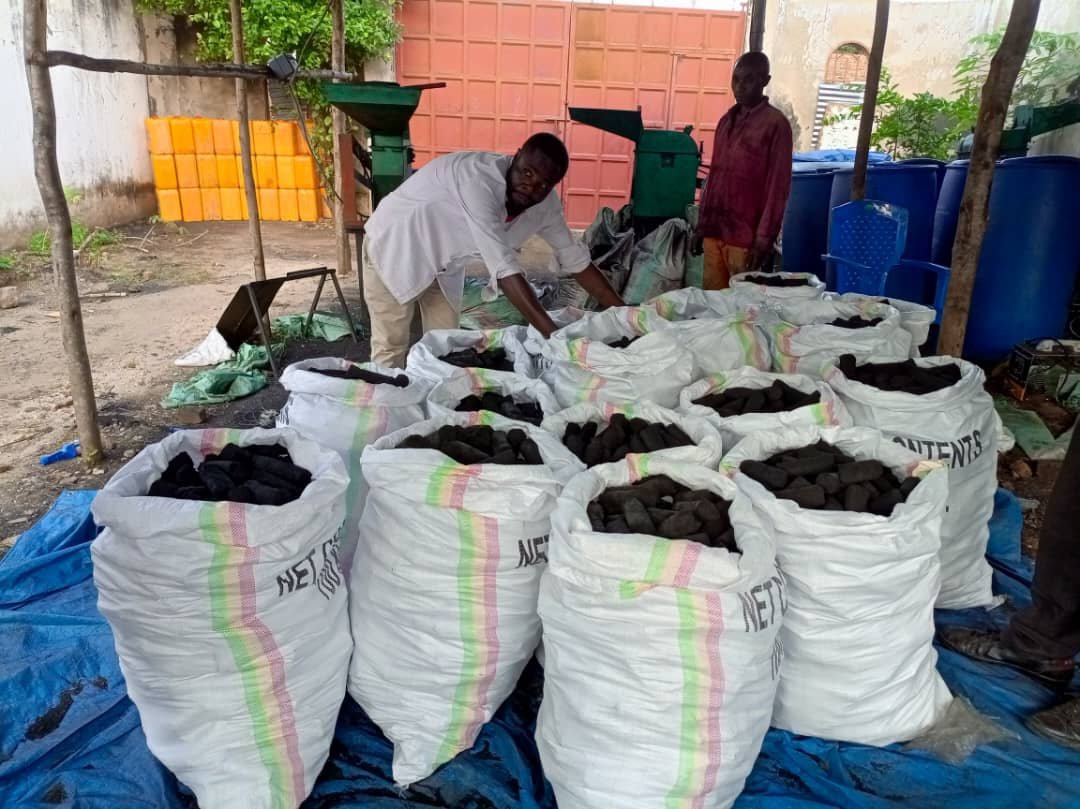Project snapshot
-
Operational area: South Kivu (Uvira and surrounding territories).
-
Scale / impact (NFI-wide evidence): NFI has produced 78,000 tonnes of biochar and increased agricultural yields by ~150% for supported farmers — results used to guide this project’s scaling.
-
Primary partners: Local cooperatives, farmer field schools, technical partners (list available on request).
Goals (3-year)
-
Produce and distribute biochar and bio-fertilizer to 3,000 smallholder farms.
-
Restore and rehabilitate 5,000 ha of degraded agricultural land in South Kivu using agroforestry and soil amendments.
-
Raise average yields for participating farmers by 50–100% (based on demonstrated NFI gains).
Core activities
-
Biochar units & training: Deploy community-scale biochar kilns and train technicians on safe, efficient production and quality control.
-
Farmer Field Schools: Seasonal on-farm demonstrations in permaculture, composting, integrated pest management and bio-fertilizer application.
-
Soil health monitoring: Baseline and periodic soil tests, yield trials and adaptive management informed by MEL (monitoring, evaluation & learning).
-
Seed systems & seedlings: Support for improved seeds and native tree seedlings for agroforestry corridors.
Expected outputs & KPIs
-
Biochar produced (projected): 4,500–7,500 tonnes over 3 years (scalable).
-
Farmers trained: 3,000+ (hands-on) and 10,000+ reached via demos & materials.
-
Hectares improved/restored: target 5,000 ha. (NFI has restored 83,000 ha at national scale; this project contributes to that effort.)
-
Yield uplift: targeted +50% to +100% on participant plots (based on NFI evidence of +150% in some engagements).
Timeline
-
Phase 1 (Months 0–6): Baseline surveys, select pilot communities, deploy 3 community kilns.
-
Phase 2 (Months 7–18): Scale training, produce first commercial batches of biochar, begin distribution.
-
Phase 3 (Months 19–36): Expand to additional sites, monitor soil & yield outcomes, explore carbon finance opportunities.
Monitoring & learning
-
Periodic soil tests, yield measurements, farmer feedback loops and case studies for knowledge sharing. MEL led by NFI’s MEL Officer.

